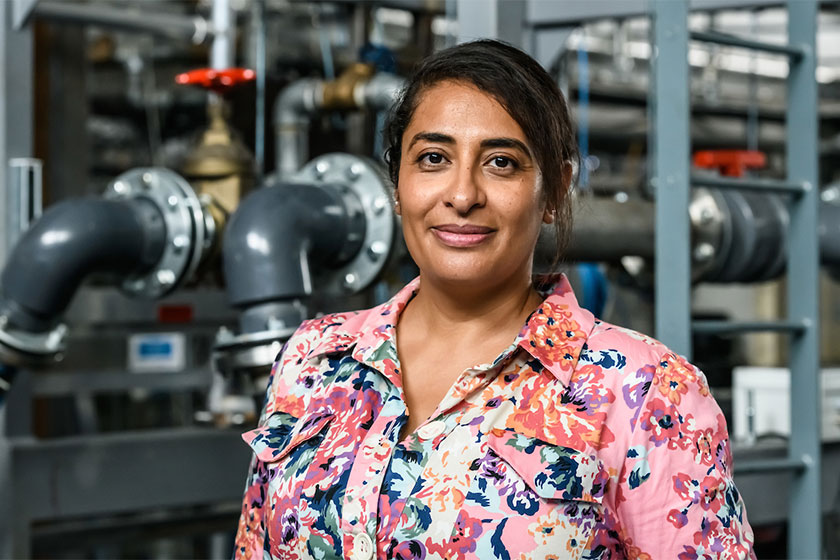
30th October 2020
A Cranfield University spin-out whose technology can detect and predict corrosion in pipelines has raised a further £900,000 to expand its global client base.
CorrosionRADAR, which has offices in Cranfield and Cambridge, secured the investment from the MEIF Proof of Concept & Early Stage Fund, which is managed by Mercia and part of the Midlands Engine Investment Fund, as well as the government’s Future Fund and existing shareholders.
The latest funding will help the company to boost overseas sales and enter new markets in preparation for a Series A funding round later this year.
CorrosionRADAR’s system addresses a major challenge for oil, gas and chemical companies - how to detect corrosion under insulation in pipelines, tanks and other vessels. It uses sensors installed next to the surface of the asset, which provides real-time data on the presence of corrosion or moisture, allowing early repairs to be undertaken, reducing maintenance costs and helping to minimise risk of catastrophic failures.
The system, which is already being used by companies including Solvay, Sitech and Reliance Industries, and in locations from Europe to the Middle East and south-east Asia, enables operators to move away from manual on-site inspections to remote monitoring, and from reactive to predictive maintenance.
Chiraz Ennaceur, CEO at CorrosionRADAR, said: “This funding has come at exactly the right time for us. COVID-19 has put digitalisation firmly on the agenda for asset owners and operators - remote monitoring has become even more important as it’s much more cost effective and safer than sending people out to sites.
“The ability to continuously monitor and predict corrosion onset will not only change the way industry approaches inspections and maintenance, but it will also reduce risk and save time and money. CorrosionRADAR is leading the way in using advanced digital technologies to respond to this global challenge and will continue to achieve its ambitious growth plans.”
Mercia has supported CorrosionRADAR since 2017 when the company was founded as a spin-out from the University of Cranfield.
Stephen Windsor, Investment Manager at Mercia, added: “CorrosionRADAR has the benefit of a management team with industry experience which has helped to ensure that the company has consistently met its technical and commercial milestones. Having supported the business to develop its technology, this follow-on round will help it to scale up its customer base ahead of a larger round later this year.“
Ken Cooper, Managing Director at the British Business Bank, said: “This latest investment in CorrosionRADAR shows how the MEIF can support companies through follow-on funding rounds, enabling a technology to be developed and then commercialised. Supporting innovation is a key objective for MEIF, and it’s great to see an innovative product now being rolled out to global markets.”
Vicky Hlomuka, Growth Hub Manager at the South East Midlands LEP said: “Investing in businesses to scale-up at different stages of their business journey is integral in helping innovative companies in the area to progress. It’s crucial that we back business to secure their future in this global marketplace, particularly during this time of change.”
The Midlands Engine Investment Fund project is supported financially by the European Union using funding from the European Regional Development Fund (ERDF) as part of the European Structural and Investment Funds Growth Programme 2014-2020 and the European Investment Bank.
If you would like to meet with one of our appointed Fund Managers to talk in more detail please go to Funds Available to find the Fund Managers operating in your area
Just add your details below to receive the latest Northern Powerhouse Investment Fund news and information